Emphasizes training in translational research
that transcends basic and population-based research, patient-oriented research, community engagement and public health policy
The CEET T32 training grant, Translational Research Training Program in Environmental Health Sciences (PIs: Drs. Trevor Penning and Rebecca Simmons) is funded by the National Institute of Environmental Health Sciences (NIEHS) and supports three predoctoral and four postdoctoral fellows. All applicants, predoctoral and postdoctoral, must be a US citizen or permanent resident.
The mission of the T32 program is to train the next generation of environmental health scientists in the mechanisms by which environmental exposures cause disease and to translate these findings into effective prevention, and treatment and improvements in public health.
that transcends basic and population-based research, patient-oriented research, community engagement and public health policy
including a research club, a dedicated seminar series, an annual symposium, and optional externships/experiential learning opportunities outside of Penn
and access to a network of investigators and resources of CEET, including our Community Engagement Core, Translational Research Support Core, Biomolecular Mass Spectrometry Core, and Environmental Health Informatics Core
in the employment sector e.g., academia (in EHS, Pharmacology and Toxicology), government agencies (e.g., US-EPA, CDC, FDA, NTP, NIH), and industry (drug, food, cosmetic and nanotechnology)
Predoctoral applications are reviewed annually. The application deadline is March 31st. The anticipated start date for appointments is July 1st. Postdoctoral applications are reviewed on an ongoing basis. Appointment start dates vary. Please check with Jenn Kuklinski (jkuklins@pennmedicine.upenn.edu) regarding the availability of slots.
Predoctoral applicants must conduct thesis work in translational environmental health sciences and must be enrolled or willing to enroll in the Certificate Program in Environmental Health Sciences:
Predoctoral applicants should submit the following documents to Jenn Kuklinski (jkuklins@pennmedicine.upenn.edu):
Postdoctoral applicants must conduct full‐time research in translational environmental health sciences.
Trainees are required to:
Postdoctoral applicants should submit the following documents to Jenn Kuklinski (jkuklins@pennmedicine.upenn.edu):
Acadia is a postdoctoral researcher in the Conine Lab in the Department of Pediatrics (Neonatology). She studied sex-specific differences in small RNA pathways during germ cell development in Diana Libuda’s lab at the University of Oregon. Currently, Acadia is investigating how sperm miRNAs regulated by PFAS exposure affect early development and non-genetically inherited phenotypes.
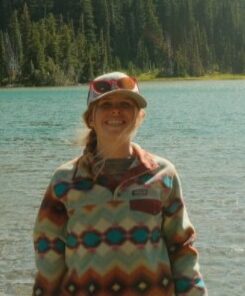
Tanis is a third year Cancer Biology PhD student at the University of Pennsylvania. She graduated from Arcadia University in 2020 with a BS in Biology and a minor in Chemistry. During her undergraduate research, she characterized and screened novel chemotherapeutics designed to target triple-negative breast cancers. Now as a graduate student in the lab of Kara Bernstein, Tanis is investigating the role of the Shu complex in mediating and resolving DNA lesions acquired due to environmental factors such as chemical mutagens and radiation.

Noah is a postdoctoral researcher in Kara Bernstein’s lab studying inherited variants of the RAD51 paralogs for potential DNA repair/HR defects. He is a Michigan native who spent time in Philadelphia earning his undergraduate at Temple University. He then went on to study DNA double strand break repair pathways (with a particular focus on NHEJ and alt-EJ) in Kathy Meek’s lab at Michigan State University. His long-term interests are to develop high-throughput assays for protein functional analysis in cell systems and to better characterize key DNA repair pathways to better understand how cells respond to genotoxic stress.
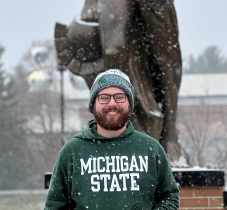
Dr. Jeanpierre is a Pediatric Allergy and Immunology Fellow. She completed her undergraduate training at the University of Chicago in Anthropology and obtained her MD at Wayne State University. As part of a predoctoral T32 program during medical school, she received an MS in Clinical Investigation from Washington University in St. Louis. Dr. Jeanpierre is investigating the relationship between air pollution and asthma exacerbations in pediatric patients at the Children’s Hospital of Philadelphia to shed light on which air pollutants in the Philadelphia region contribute to worsening asthma symptoms in children. She seeks to provide valuable insights that will inform clinicians and families on specific interventions that can reduce the burden of air pollution-related asthma exacerbations.

Jennifer earned her BS in Nursing from Emory University and MPH from George Washington University, where her clinical work and public health training sparked a deep interest in how environmental exposures affect maternal health. As a PhD student in Epidemiology under the advisement of Dr. Aimin Chen, Jennifer studies how PFAS and heavy metal toxicant mixtures influence endocrine outcomes in pregnancy, specifically gestational diabetes. Her research leverages environmental epidemiology to identify key chemical exposures and vulnerable subgroups, with the goal of informing targeted public health interventions and guiding policies that protect marginalized communities.
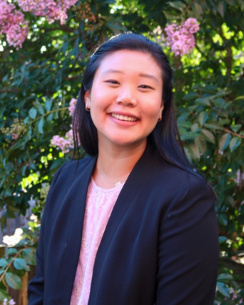
Kayla is a postdoctoral researcher in the Bartolomei Lab in the Cell and Developmental Biology Department. She earned her PhD in Molecular, Cellular, and Developmental Biology at the University of Pittsburgh, where she studied polyspermy blocking mechanisms. Currently, Kayla’s research focuses on the epigenetic consequences of Assisted Reproductive Technologies (ART) and endocrine disrupting chemical (EDC) exposure in offspring. The goal of this research is to elucidate whether ART-conceived offspring who are exposed to EDCs exhibit compounded effects, which has the potential to inform current, widely used ART procedures.
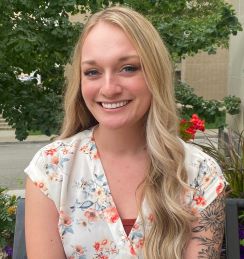
Alyssa is a third year Genetics & Epigenetics PhD student at the University of Pennsylvania. She graduated from the University of Florida in 2023 with a BS in Microbiology & Cell Science. As a graduate student in the lab of Dr. Brian Capell, Alyssa is investigating epigenetic mechanisms involved in the development and progression of skin cancer. An element of her project is using ultraviolet radiation to investigate how environmental exposures may induce epigenetic memories, and how these memories may influence disease initiation and progression.
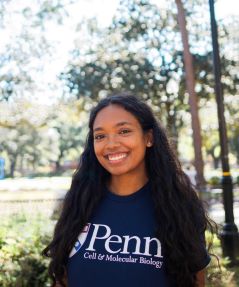
Each trainee is partnered with a Faculty Trainer who mentors the trainee throughout their tenure in the program. If you are interested in becoming a Faculty Trainer, please submit the following documents to Jenn Kuklinski (jkuklins@pennmedicine.upenn.edu):